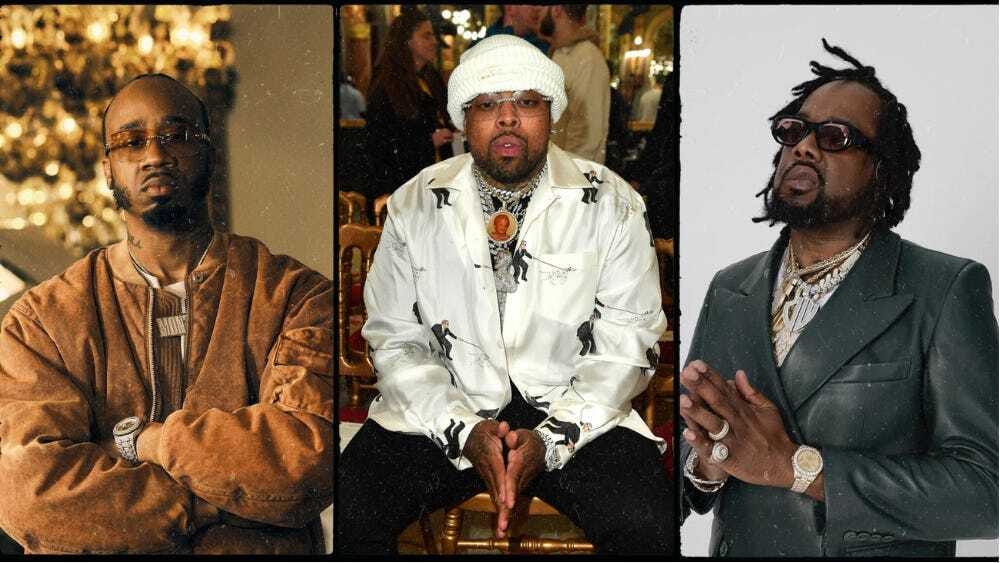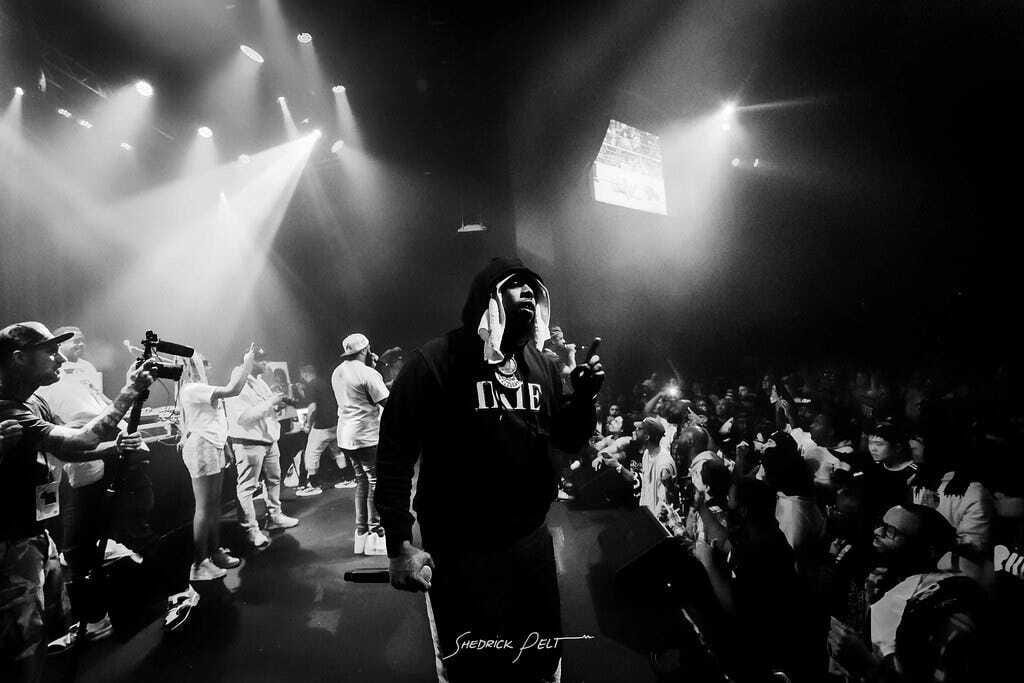
What defines success in modern music? The usual barometers range from streams and album sales to the size of an artist’s audience. And while these benchmarks matter, they mean little to rapper Westside Gunn, co-founder of the Griselda rap collective.
In a landscape obsessed with young stars, constantly searching for who’s next, 42-year-old Gunn and other foundational members of Griselda – including Conway the Machine, 43, and Benny the Butcher, 40 – have created a movement based on the slow and steady. The trio has written the script on the late-stage come-up, curating a signature sound that combines modern boom-bap and elegant jazz loops with gritty subject matter, high fashion, luxury, and even WWE references.
By capitalizing on cultural fluency and signature aesthetics, this group of vets has created a loyal – and even youthful - fanbase enraptured by their sound. In doing so, Griselda, a reference to the Colombian drug lord Griselda Blanco, has become synonymous with the highbrow underground celebrated by the youngest generation of Hip-Hop listeners.
Known for their gritty style and tales about their experiences with drugs and the streets, Griselda has unapologetically challenged the rules of the rap industry come-up, operating outside traditional rollout strategies, and proven that there’s power in finding and owning your niche.
So, how did they do it? They took their time, and they stayed on their grind. Gunn, the group’s de facto leader and the label founder, has been releasing music since 2005, and along the way has had several run-ins with the law, including stints in jail, which has hindered the traditional rise to which fans have become accustomed. Conway, his younger brother, and Benny, his cousin, followed similar paths — dropping sporadic, inconsistent mixtapes, dealing with the law, and honing in on their sound. Their collective, tumultuous upbringing provides the basis for their signature storytelling and vivid lyrical content.
Each member has a unique delivery: Gunn with his unmistakable nasal inflection and ad-libs; Conway with his signature slur; and Benny with his calm intensity. They describe the grimy, gritty underside of Buffalo, New York, detailing experiences in drug dealing and street life with matter-of-fact precision. In-house producer Daringer and frequent collaborator The Alchemist complete the paintings with lush, flowing instrumental loops and expertly chosen samples.
Despite Griselda’s steady ascension, characterized by high-profile features and signees, including Boldy James, Tyler, the Creator, and even industry legends like Raekwon and Jadakiss, music often feels like an afterthought for the group.
Strangely enough, Gunn created Griselda first as a clothing line, founding “Griselda x Fashion Rebels,” or GxFR, as a brand to amplify his style and creative direction. He has remained true to his fashion roots, evident in collaborations outside the booth, including showcases at Paris Fashion Week, collaborations with Denim Tears, and Virgil Abloh (who designed the Pray for Paris album cover).
Griselda has evolved to be more than a label – it is a cultural collective dedicated to producing and showcasing its art. Producing and putting out content is what they do best. Group members completely disregard the traditional standard for releases; instead, they drop projects whenever they want. What’s known in the industry as “dumping,” Griselda members drop singles, EPs, and albums in rapid succession, with little-to-no traditional rollout, marketing, or pacing. In doing so, the group has only strengthened their cult following — fans know they’re getting quality projects that they won’t have to wait for.

By flooding the streets, Griselda has built a legacy of hundreds of authentic projects and created a core audience of young, underground Hip-Hop fans. Griselda has capitalized on the virality and popularity of minimalist, loop-heavy production in lo-fi rap music. By sampling jazz and soul tracks from the ‘60s and ‘70s — including vinyl crackles, brooding piano riffs, and all — Griselda’s producers evoke a sense of nostalgia for a generation of listeners who never lived through it. The combination of these moody instrumentals and hard-hitting lyrics has become another hook for fans, as listeners are drawn further in by each bar. The amount of detail and specific scenarios referenced in certain songs has even given rise to social media trends commenting on the Westside Gunn and Griselda listening experience. Fans can’t get enough of the constant juxtaposition between melodic sampling and the mix of grimy and highbrow lyrical storytelling.
Griselda constructed its niche from scratch and has tapped into an audience that might not be able to directly relate, but can still consume, appreciate, and be inspired by the art. Despite underground origins, Griselda’s members have carved out a space in the industry, now beginning to see the appreciation that comes with mainstream status. They are recognized as the torch-bearers for an old-school sound while fully integrating with modern musicians who collaborate with high-fashion cultural fixtures. Ask the original members of Griselda, and they’d probably say critical acclaim was never the goal. Still, their rise is proof that there is real power in owning your niche — and refusing to compromise it. Gunn said it best on NPR’s Microphone Check: “We really just live our life. We rap about our life, where we from, our city, what we've been through, from the streets to losing people to being in prison. Everything you hear is reality for us.”